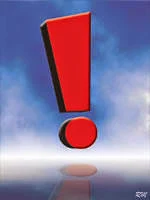Reflections
When I was young, I would always imagine one day where there will be a trigger
where I would transform from a boy to a man. Unfortunately, there is no
such magic switch. Just as Rome was not built in one day, one does not
gain maturity through some magical transformation. Even though
there’s no shortcut to growing up, every few years reflecting back on my
life’s journey, I realize that my experiences do change me and shape
who I am today. One of the biggest changes I experienced this past year
is being totally comfortable with myself.

Back in my early years, I tried hard to find where I belong and where to
fit in. I don’t know what it was, maybe I was a quirky kid, maybe I was
an introvert, fitting in as a kid was hard. It certainly didn’t help my
case that due to my dad’s job meant I had to change schools and cities frequently, due to my ever changing residence, it was hard building
strong and lasting relationship with other people my age. It was like
the movie “
Lost in Translation", except it was a little kid’s version of
it.
As the years went past, probably around high school or early college, I
gave up trying to fit in and couldn’t care less what other people thought.
I didn’t feel the need to explain myself. I would do things my way.
It’s as if I was in my own little world, I didn’t justify myself to
anyone. It was probably then that I develop this arrogant aura to my
personality. I would carve my own path and I was damn proud of it.
There
would be times where I just felt like I am better than most people, and
that I don’t need to fit in to the stupid social circles people are
forming in schools. I was a misanthrope. Looking back at those times
now, my arrogance was probably a cover for my lack of self-confidence. Truth be told, I wasn’t comfortable with myself, and by
telling myself that I was somehow different and better than others numbed
the feeling, that maybe there’s something wrong with me that I can’t
fit in.
Then my college years came. College was fun. The freedom, the liberation
to be able to do whatever you wish. You set your own priorities. The
best of it all was that it was a place where people value diversity.
People attend colleges to hear stories and to know people with different
experiences in life.
Then something happened, I met someone. I could trust someone other than my family for the first time. Ah, the joy
of that friendship, but like most friendships, things went terribly wrong
after a year. I won’t get into the details, but I was hurt and I was broken, I made life changing
decisions to run away from it, it was a dream that I wanted to forget.
After that things just weren’t the same anymore, I never really open up
to anyone completely again. I was different things to different people.
Even though I have friends who I was close with, nobody really knew the
whole picture. If I felt broken or something missing, it was hidden from sight.
Sometimes in life, a dagger is what it takes to wake you up. When I met my future wife, I was going through the worst phase of my life. I decided to rebuild myself. I realized that no relationship can help me
gain self-acceptance or feel complete except for myself. I was
determined to grow and improve myself. At first, there was this natural
tendency to improve myself out of this love/hate feeling.
I started climbing out of the walls that I built over the years, my
outlook on life improved. It was a positive feedback loop, the better I
felt the more that I was able to let go of it. I start gaining
perspective on things, and stop feeling the need that I need to prove anything to anybody.
Looking back at it, it shaped me, it helped me grow, it is part of who I
am. I am sorry if I hurt anybody along the way, I really am, but I
don’t regret anything that happened in my life. I am who I am, and I am
comfortable with my past. Whether it be my relationships. Or moving
around as a kid. Or all the stupid things I did to myself or others. We
are who we are because of the paths we travel.
There are no good and bad
experiences, only experiences in which we learn and don’t learn from.
These days, I try not to compete with others; I compare myself with
yesterday’s self. I rejoice if I improved, but try harder the next day
if no progress was made. I learned to accept my own weaknesses,
weaknesses don’t make you weak, but not acknowledging them does.
Everybody has their own strengths and weaknesses, and I am now
comfortable with mine. It’s a great feeling to be at peace with myself.










0 comments :